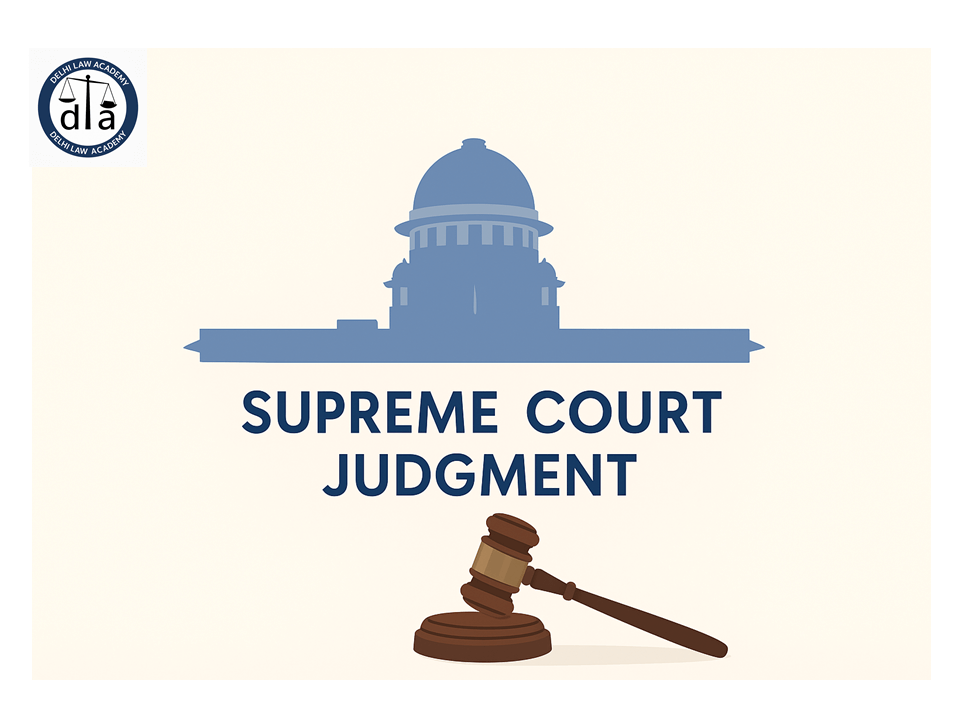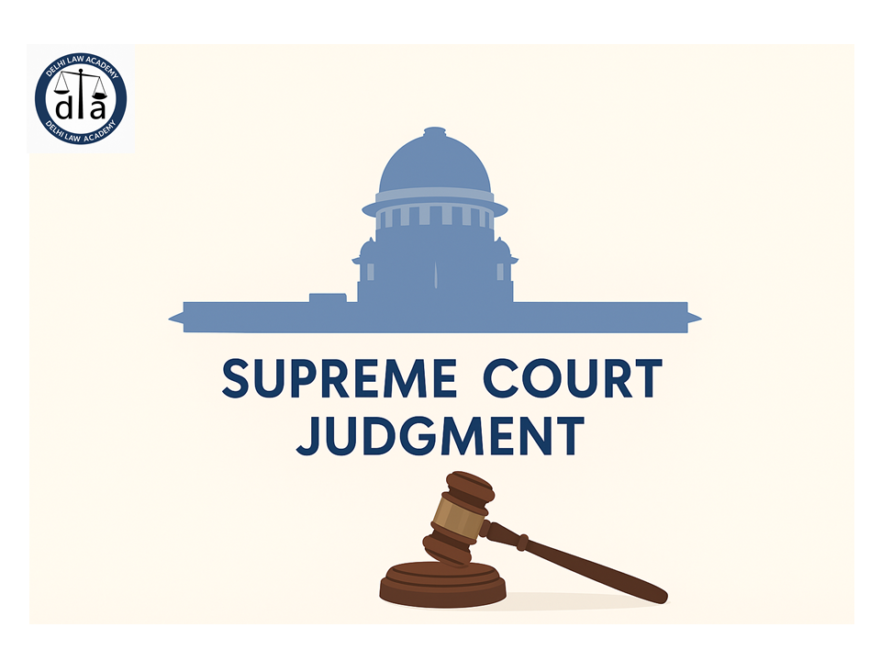
⚖️ Supreme Court on OBC Reservations under Article 16(4)
Delhi Law Academy Jaipur presents below for aspirants of RJS, DJS, PCS(J) and other Judicial Services throughout India a concise and useful summary of a landmark Supreme Court judgment elucidating the scope and limitations of reservations in public employment under Article 16(4).
📌 Topics Covered
- Supreme Court on Identification of “backward class of citizens”
- Supreme Court on Reservations for OBCs for Admissions in Public Employment
- Supreme Court on Reservations under Article 16(4)
- Reservations contemplated in clause (4) of Article 16 should not exceed 50%
- Article 16(4) does not permit provision for reservations in the matter of promotion
📘 Indra Sawhney v. Union of India [1993 SC]
Constitutional Validity of Reservations for OBCs in Public Employment
📝 Issue 3(a) – Meaning of “backward class of citizens”
Answer:
- A caste can be and quite often is a social class in India. If it is backward socially, it would be a backward class for the purposes of Article 16(4).
- Among non-Hindus, there are several occupational groups, sects and denominations, which for historical reasons, are socially backward. They too represent backward social collectivities for the purposes of Article 16(4).
📝 Issue 3(b) – Identification of “backward class of citizens”
Answer:
- Neither the Constitution nor the law prescribes the procedure or method of identification of backward classes. Nor is it possible or advisable for the court to lay down any such procedure or method. It must be left to the authority appointed to identify.
- It can adopt such method/procedure as it thinks convenient and so long as its survey covers the entire populace, no objection can be taken to it.
- Identification of the backward classes can certainly be done with reference to castes among, and along with, other occupational groups, classes and sections of people. One can start the process either with occupational groups or with castes or with some other groups.
📝 Issue 3(d) – ‘Means-test’ and ‘creamy layer’
Answer:
- ‘Creamy layer’ can be, and must be excluded.
📝 Issue 3(e) – Qualification for Backward Class
Decision:
- It is not necessary for a class to be designated as a backward class that it is situated similarly to the Scheduled Castes/Scheduled Tribes.
📝 Issue 3(f) – Adequacy of Representation
Decision:
- The adequacy of representation of a particular class in the services under the State is a matter within the subjective satisfaction of the appropriate Government.
- The judicial scrutiny in that behalf is the same as in other matters within the subjective satisfaction of an authority.
📝 Issue 4(b) – Identification based on occupation-cum-income
Decision:
- It is permissible for the Government or other authority to identify a backward class of citizens on the basis of occupation-cum-income, without reference to caste, if it is so advised.
📝 Issue 5 – Sub-categories of Backward Classes
Decision:
- There is no constitutional bar to classify the backward classes of citizens into backward and more backward categories.
📝 Issue 6 – Extent of Reservation
Decision:
- The reservations contemplated in clause (4) of Article 16 should not exceed 50%.
- Extreme caution should be exercised in special cases, especially in remote areas, but the rule remains that reservations should generally not exceed 50% in any service or cadre per year.
📝 Issue 7 – Reservation in Promotion
Decision:
- Article 16(4) does not permit provision for reservations in the matter of promotion. This rule shall, however, have only prospective operation.
- It is permissible for the State to extend concessions or relaxations without compromising efficiency of administration.
📝 Issue 8 – Reservations and Merit
Decision:
- While the rule of reservation cannot be called anti-meritarian, there are certain services and posts to which it may not be advisable to apply the rule of reservation.
📝 Issue 11 – Other Economically Backward Sections
Decision:
- The reservation of 10% of the posts in favour of other economically backward sections not covered by existing schemes (Office Memorandum dated 25-09-1991) is constitutionally invalid and struck down.
📌 Other Observations
- Article 16(4) is not an exception to Article 16(1); it is an instance of classification inherent in Article 16(1).
- The expression ‘backward class’ includes OBCs, SCs, STs, and possibly other backward classes; social, educational, and economic backwardness are intertwined.
- Reservations under Article 16(1) cannot be based solely on economic criteria.
- Reservations under Article 16(4) should not exceed 50% in any grade, cadre, or service per year. Special cases require caution and justification.
- Backward classes can be classified into more backward and backward groups; ‘creamy layer’ should be excluded.
- Article 16(4) reservation applies only to initial appointments and not to promotions.
📚 Further Reading for Law Aspirants
Explore more useful resources from Delhi Law Academy to strengthen your preparation:
❓ FAQs on OBC Reservations under Article 16(4)
Contact us
📍 Delhi Law Academy – Jaipur Branch
6C, Tower 2, Coaching Hub, Pratap Nagar, Jaipur – 302033
📞 Phone:
+91 9911916552
+91 8447285606
✉️ Email:
contactus@delhilawacademy.com

